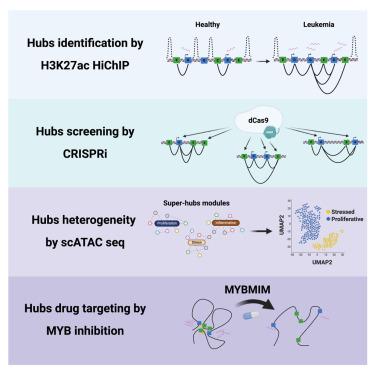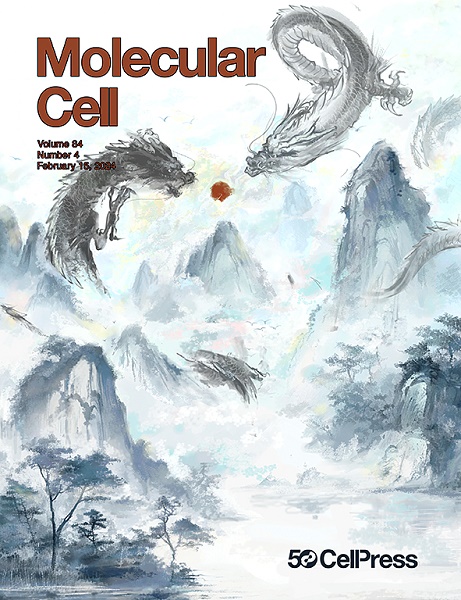3D chromatin hubs as regulatory units of identity and survival in human acute leukemia
IF 14.5
1区 生物学
Q1 BIOCHEMISTRY & MOLECULAR BIOLOGY
引用次数: 0
Abstract
Cancer progression involves genetic and epigenetic changes that disrupt chromatin 3D organization, affecting enhancer-promoter interactions and promoting growth. Here, we provide an integrative approach, combining chromatin conformation, accessibility, and transcription analysis, validated by in silico and CRISPR-interference screens, to identify relevant 3D topologies in pediatric T cell leukemia (T-ALL and ETP-ALL). We characterize 3D hubs as regulatory centers for oncogenes and disease markers, linking them to biological processes like cell division, inflammation, and stress response. Single-cell mapping reveals heterogeneous gene activation in discrete epigenetic clones, aiding in patient stratification for relapse risk after chemotherapy. Finally, we identify MYB as a 3D hub regulator in leukemia cells and show that the targeting of key regulators leads to hub dissolution, thereby providing a novel and effective anti-leukemic strategy. Overall, our work demonstrates the relevance of studying oncogenic 3D hubs to better understand cancer biology and tumor heterogeneity and to propose novel therapeutic strategies.

求助全文
约1分钟内获得全文
求助全文
来源期刊

Molecular Cell
生物-生化与分子生物学
CiteScore
26.00
自引率
3.80%
发文量
389
审稿时长
1 months
期刊介绍:
Molecular Cell is a companion to Cell, the leading journal of biology and the highest-impact journal in the world. Launched in December 1997 and published monthly. Molecular Cell is dedicated to publishing cutting-edge research in molecular biology, focusing on fundamental cellular processes. The journal encompasses a wide range of topics, including DNA replication, recombination, and repair; Chromatin biology and genome organization; Transcription; RNA processing and decay; Non-coding RNA function; Translation; Protein folding, modification, and quality control; Signal transduction pathways; Cell cycle and checkpoints; Cell death; Autophagy; Metabolism.
 求助内容:
求助内容: 应助结果提醒方式:
应助结果提醒方式:


